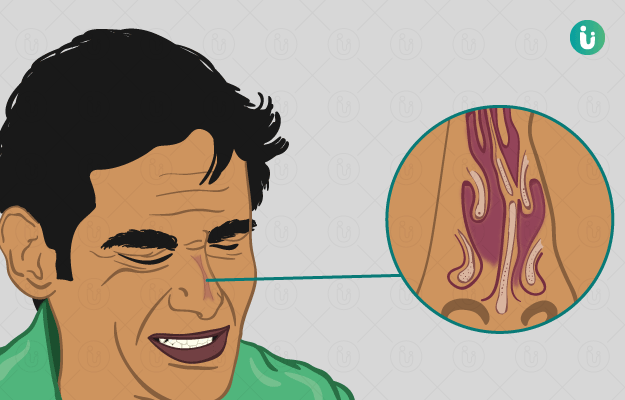Septum is a thin, somewhat flexible lining made up of bony cartilage that separates the two nostrils in a human nose. In some people, the septum isn't quite in the middle of the two nostrils. This condition is known as a deviated nasal septum (DNS) or nasal septum deviation.
A nasal septum deviation can make it difficult for the person to breathe freely. A study done as far back as 1978 observed that more than a third of the world's population has been living with this condition.
The left and right nasal passages in a person's nose are usually of the same size—when a deviated septum makes one nostril too small, it can restrict airflow.
Some people are born with a crooked or off-centre septum, while others may develop DNS later in life due to some sort of an injury or accident. Research shows people who are born with a deviated septum most often have a smooth "C" or "S" shaped nose with a bend in the anterior septum. In people who develop DNS due to an injury or accident, the deviation tends to be more angular and may even point to a dislocation.
In most cases, people tend to ignore this condition as it doesn't cause a disruption in their daily lives, but it is known to cause difficulty breathing, congestion, sinusitis, postnasal drip, nosebleeds or even sleeping problems and headaches in moderate to severe cases. The condition is treatable through conservative or surgical interventions.
Here's everything you wanted to know about a deviated septum:

 Doctors for Nasal Septum Deviation
Doctors for Nasal Septum Deviation 












































